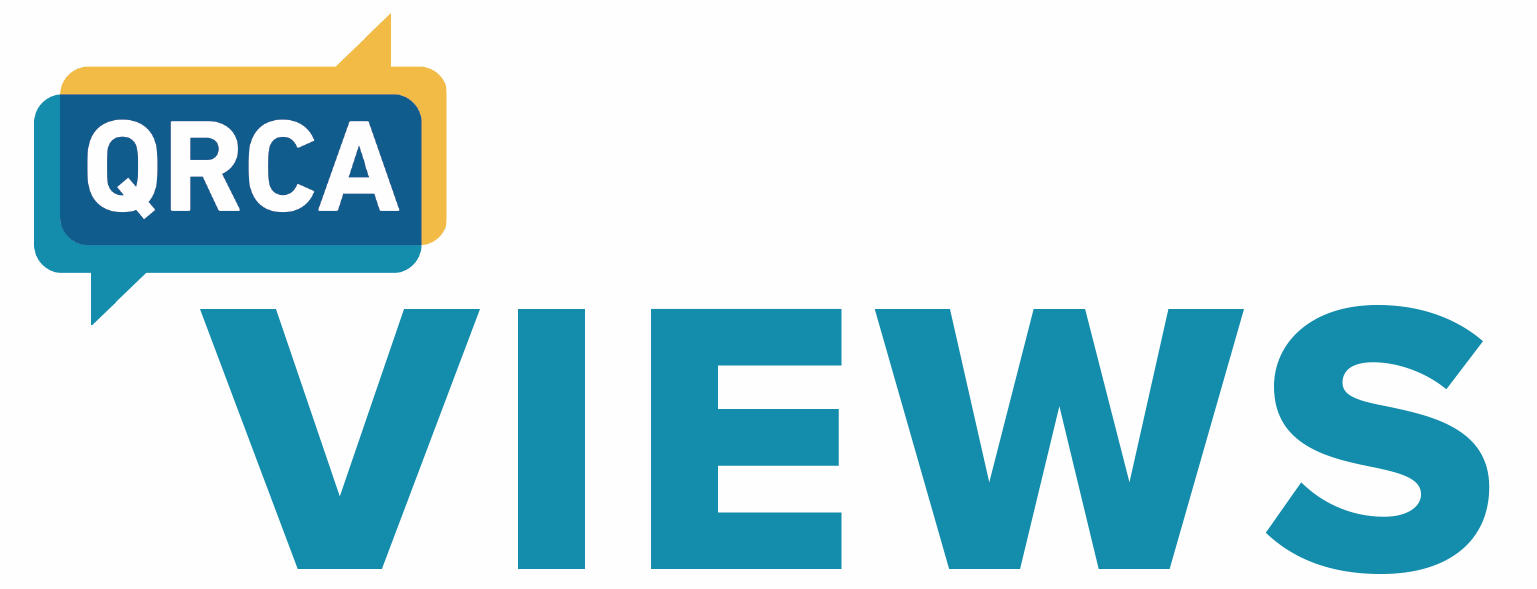One of my favorite things about QRCA has been getting to work with qually colleagues all over the world. I was a long-time solopreneur, as many qualitative research consultants are, but after some successful collaborations, I’m a true believer that 1 + 1 = 3. Here are just a few examples of ways collaborating can grow your work in all directions.
Go Higher
Working with someone else can take you to the next level—whether it’s using a different reporting style, learning new techniques and methodologies, or just taking on bigger projects than you could on your own. (We’ve all had those clients who want eighty IDIs in a month.)
Spread Wider
Splitting work has allowed me to give my clients what they need, without having to do everything myself. I’ve worked with bicoastal teams of moderators to conduct groups in multiple markets without travel, and with bilingual moderators so we could include groups of Spanish speakers. Last year, Jeanne Corrigan’s client asked her for a qual-quant hybrid project. Even though she doesn’t do quantitative research, Jeanne was able to say yes to her client and subcontract that portion of the work to me. It was a win-win. Jeanne’s client really saw her as a partner, and I got experience in a new category. (Actually a win-win-win, because now Jeanne and I are actively seeking more opportunities to work together!)
I almost always find that two heads are better than one when working on a report or a guide. Having someone to continually ask, “What else?” and add, “Yes, and….” has made my work much richer.
Getting Started
Are you wondering how to get started with a successful collaboration? Here are some things to think about.
Think about where collaborating could help you do more, better. Do you work in the same few categories? Do you recommend the same methodologies, platforms, or markets on autopilot? Does working on reports alone make you want to cry?
Think about what else you want to give your clients—or what they’ve been asking you for. Do they want quant, where you only do qual? Do they want to do something online, while you’re only comfortable working in person?
Figure out what you want from a collaboration. How can another person or group help you? This could mean dividing the work with someone—maybe you’re on the East Coast and want a West Coast collaborator to cover your online boards at night. Or collaboration could be more “meta”—someone to talk through ideas with, or someone whose style is different enough from yours that you learn something new just from watching them.
How do you find opportunities to join forces? This might be easier said than done, but here are a few ways to find awesome co-workers.
- Ask for help. I posted on the QRCA Forum looking for anyone who had experience working with Native American audiences and ended up meeting Shannon Danzy, who’s become a dear friend and frequent collaborator.
- Offer help. Again, the QRCA Forum and Facebook group are gold mines for anyone who wants to partner. Think about your own experience and what you like to do. What can you provide?
- Stay in the loop. I love going to the QRCA conferences and local chapter events, participating in online webinars, and reading Views, Connections, and News Bites. Knowing what other people are up to always sparks ideas for collaborations. I just read Casey Bernard’s article in the Summer 2019 Views about the podcast reports she does, and now I’m actively looking for an opportunity to bring her into a project!
Setting Yourselves Up for Success
You’ve found a collaborator, a project is about to happen, and you’re excited to dive in! Especially for first-time partners, an honest conversation up front with your new partner can save you from a lot of headache and heartache down the line. Here are just a few questions to talk through with your new colleague:
First, the nitty-gritty. Are we contracting separately with the client, or is one of us subcontracting to the other? Who needs to sign a non-disclosure agreement? How will billing work? Who is covering out-of-pocket expenses and managing any external partners, such as facilities, recruiters, transcription, or video services? I’ve had some tense moments where I was expecting a quick payment, but my collaborator had to wait for a check from her client. Hash all this out up front—in writing!
Align your expectations. Take an hour (or two) and talk through how the project will work! Set internal deadlines and regular check-ins. Be clear about your needs, where you can be flexible, and where you have to put your foot down. I’m an anti-procrastinator who likes to get things done early, so partnering with folks who regularly pull all-nighters and deliver right under the wire stresses me out. A good friend who I collaborate with frequently has “blackout” hours every day from the time her kids get home until they go to bed, so I know not to schedule calls in that window. A few questions to ask to make sure you’re aligned:
- How are we dividing the work? Will I be handling the quant while you’ll be doing the qual? Will we both moderate and then come together to debrief? Will I do the first draft of a guide and you’ll polish it, or will we work side by side on a document?
- What kind of deliverable is needed? Will we integrate everything into one report or do separate ones? Are we both presenting? Whose template will we use?
- How much time is going into this? If I’m expecting to pop in on my online boards once or twice a day for an hour, but you think all the participants are going to get regular care and feeding, we need to either meet in the middle or figure out how to divide things in a way we’re both cool with.
Establish how you and your collaborators will keep track of everything. Nobody wants communication to slip through the cracks, but when we’re all using a million different tools, it can be a challenge! My team loves Asana for project management, but we’re strictly anti-Slack. I’m a long time Google Drive fan, but I partner with Katrina Noelle a lot and, on her projects, we use Dropbox.
Other things to figure out before anything gets lost include the following:
- Will we have regular check-ins with each other? What about with the client team? How often? Who should participate? Will we be on the phone, on video, or in person?
- How are we monitoring progress? Do we have a shared calendar, use project management software, work in Google docs, or just email drafts back and forth like cavemen? If so, what’s our file-naming convention and how will we avoid version control issues?
- What do different communication mechanisms mean to each of us? For me, email is for non-emergencies. If I get a work-related text, I assume there’s a fire, and if I get an unplanned phone call, I assume that I’m the one who needs to put it out. I’ve answered calls from collaborators with, “What’s wrong?” and found out they just wanted to shoot the breeze.
And finally, a hidden bonus to collaborating. Finding partners that I gel with and trust has let me feed my extrovert side. Being an independent QRC is amazing, but it can be lonely. In the last few years, collaborating has not only led me to new categories, new clients, and new methodologies (while doing better work more quickly with less effort), but I’ve also developed incredible relationships with other researchers as we’ve worked together in the trenches. My collaborators have helped me grow as a researcher, a business owner, and a person, and I wish you the same happiness and success in collaboration!


Be the first to comment